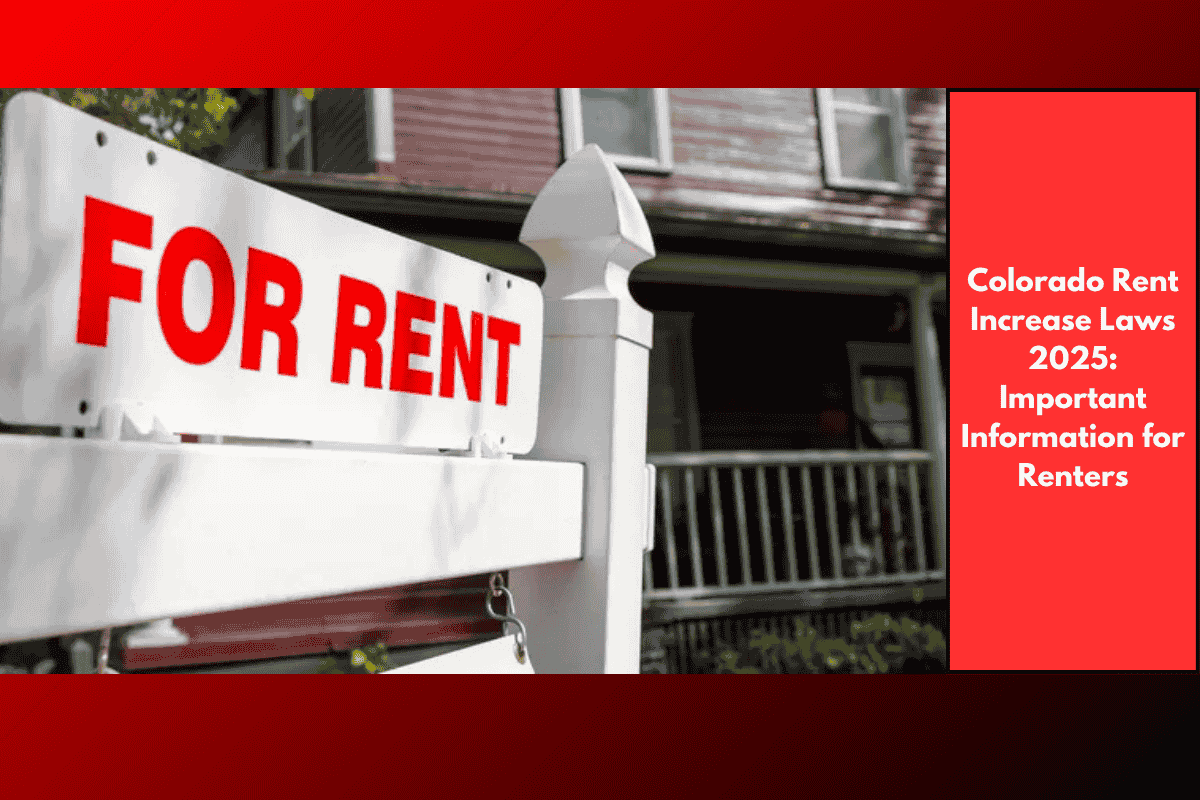In 2025, renters in Colorado need to stay informed about changes in the state’s rent increase laws, as new regulations are affecting how landlords can raise rents and what protections tenants have. As the cost of living continues to rise, understanding the rules around rent increases is essential to ensure tenants are protected from unfair hikes. Here’s a comprehensive guide to Colorado’s rent increase laws and what renters need to know in 2025.
What Are the Key Changes in Colorado Rent Increase Laws for 2025?
Colorado has introduced several key changes and protections related to rent increases in 2025, aiming to balance the interests of landlords and tenants. While rent control is still a controversial topic, Colorado has introduced new regulations that make rent increases more transparent and limit how much landlords can raise rents annually.
Rent Increase Limits for Certain Areas
In 2025, cities and counties in Colorado may have limits on how much rent can be increased annually. This is particularly true for cities with high demand and rapid growth, such as Denver. These limits are designed to prevent excessive rent hikes and provide renters with more stability. Local governments have the authority to set caps on rent increases based on factors like average rents and inflation rates.
Denver: In areas like Denver, a new law mandates that landlords can only increase rent by up to 5% annually for tenants who have lived in the unit for at least a year.
Other Cities: Other municipalities in Colorado may have different limits, so it’s important to check with local regulations.
Notice Period for Rent Increases
Landlords in Colorado must provide written notice of a rent increase, and the required notice period has been extended to 60 days for most cases. This is a key protection for renters, as it ensures they have adequate time to plan for the increased rent or look for alternative housing if necessary.
60-Day Notice: Renters now must receive at least 60 days’ notice before a rent increase is applied.
Short-Term Leases: If the lease is for less than one year, a landlord may still increase rent after the notice period stipulated in the lease, but they must follow the 60-day notice rule.
Restrictions on Rent Increases in New Leases
Landlords cannot impose significant rent increases when signing a new lease with tenants. For example, new tenants cannot face a rent increase that exceeds 10% of the previous tenant’s rent, unless the landlord can show that the increase is justified by significant renovations or improvements to the property.
Statewide Rent Regulation
While Colorado does not have statewide rent control (as seen in some other states), the state has implemented some regulations that govern unreasonably high rent increases. For instance, a rent increase deemed “unreasonably high” could result in legal challenges from tenants or advocacy groups, leading to penalties for landlords.
Rent Increases and Your Rights as a Tenant
As a renter in Colorado, you have rights that protect you from unfair rent increases and other forms of mistreatment. Here’s a breakdown of your rights under the 2025 laws:
Protection Against Unfair Rent Increases:
If your landlord increases rent beyond the allowable limits (as per your local jurisdiction), you have the right to contest the increase. You may be able to file a complaint with your local housing authority or take legal action against the landlord.
No Rent Increases During the First Year of Lease:
For fixed-term leases (like a 12-month lease), landlords are not allowed to increase rent during the first year. Rent increases can only happen after the lease ends and upon entering a new agreement.
Late Fees and Rent Increases:
Rent increases cannot be used as a way to enforce late fees. If a tenant is struggling with rent payments, landlords are not permitted to hike the rent as a penalty or in retaliation for late payment. Tenants have protection from retaliation under Colorado law.
Rent Increase for Tenants on Public Assistance:
Tenants who are receiving public assistance or Section 8 housing vouchers may have additional protections. For instance, any rent increase for these tenants must be justified and cannot be discriminatory or punitive.
What Should You Do if You Receive a Rent Increase Notice?
If you receive a rent increase notice, here’s what you should do:
Review the Notice: Ensure that the landlord has given you the proper 60-day notice. Check whether the increase falls within local limits and whether the notice includes all required information, such as the reason for the increase.
Evaluate Your Options:
Negotiate: If the rent increase is more than you can afford, consider negotiating with your landlord. Some landlords may be willing to reduce the increase or offer alternative solutions, such as longer lease terms.
Seek Legal Advice: If you believe the increase is illegal, or if the landlord is violating your rights, consider seeking advice from a tenant’s rights organization or an attorney specializing in housing law.
Start Looking for Alternatives: If you cannot afford the increase, start searching for new housing options early, especially if you have less than 60 days to move.
The Colorado rent increase laws in 2025 offer important protections for renters. While rent control is not a part of the law, the state has implemented limitations on how much and how often landlords can raise rent. Renters now have more time to respond to rent increases, and local municipalities have the power to regulate rent hikes based on local conditions. By staying informed about your rights and local regulations, you can better navigate the rental market and avoid surprises.
SOURCES
[1] https://www.doorloop.com/laws/colorado-rent-control-laws
[2] https://www.coloradolegalservices.org/housing/landlords-raising-rent/
[3] https://leg.colorado.gov/bills/hb25-1092
[4] https://doh.colorado.gov/rent-increases
[5] https://www.steadily.com/blog/how-much-can-a-landlord-raise-rent-in-colorado














